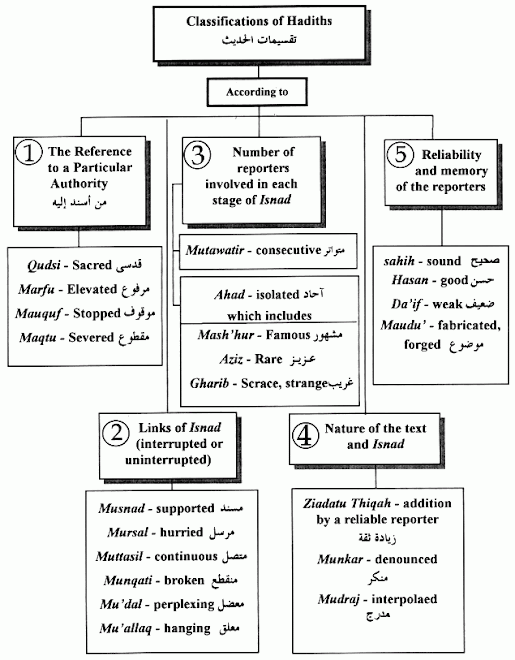 Abu Ja'far Muhammad bin Ya'qub bin Ishaq al-Kulayni al-Razi (864-941 C.E.) was a ninth/tenth century Twelver Shi'i religious scholar and muhaddith, a scholar and specialist in hadith (plural: ahadith), reports of the Prophet Muhammad's sayings and actions as recorded by transmitters from Companions of the Prophet. For Twelver Shi'is, ahadith may also be sayings and actions of the 14 "Infallibles," individuals whom they believe to be inerrant. These 14 include the 12 Imams, descendants of the Prophet through his cousin and son-in-law, 'Ali bin Abi Talib, and, more specifically, 'Ali's son Husayn, the third Imam.
Abu Ja'far Muhammad bin Ya'qub bin Ishaq al-Kulayni al-Razi (864-941 C.E.) was a ninth/tenth century Twelver Shi'i religious scholar and muhaddith, a scholar and specialist in hadith (plural: ahadith), reports of the Prophet Muhammad's sayings and actions as recorded by transmitters from Companions of the Prophet. For Twelver Shi'is, ahadith may also be sayings and actions of the 14 "Infallibles," individuals whom they believe to be inerrant. These 14 include the 12 Imams, descendants of the Prophet through his cousin and son-in-law, 'Ali bin Abi Talib, and, more specifically, 'Ali's son Husayn, the third Imam.Al-Kulayni, as he is usually known, compiled one of the four collections of ahadith (al-kutub al-arb'ah) considered canonical by Twelver Shi'is, Kitab al-Kafi ("Sufficient Book"). The two hadith below come from the one part of the collection, Furu' al-Kafi (approximately, "Sufficient Branches"). Both address the issue of jihad ("struggle"), which has numerous varieties in Sunni and Shi'i jurisprudence, including the now well-known military jihads, offensive and defensive. Honorific formulas repeated after the name of scholars, Infallibles, and the Prophet are omitted.
The translations below are my own.
_____________________________
Kitab al-Jihad (Book of Jihad), Furu' al-Kafi, hadith #8172
عدة من أصحابنا عن أحمد بن محمدعن علي بن الحكم عن أبان عن أبي عبد الله، قال قال رسول الله : الخير كله في السيف و تحت ظل السيف و لا يقيم الناس إلا بالسيف و السيوف مقاليد الجنة و النار .
"A number of our Companions (narrate) from Ahmad bin Muhammad from 'Ali bin al-Hakam from Aban from Abu 'Abdullah (sixth Imam, Ja'far al-Sadiq), said that the Messenger of God said: 'All goodness is in the sword and being in the sword's shadow and not evaluating the people except (by) the sword, and the swords are keys (in the sense of being "integral") to Paradise and the Conflagration (Hell)."
______________________________
Kitab al-Jihad (Book of Jihad), Furu' al-Kafi, hadith #8180
علي بن ابراهيم عن أبيه عن النوفلي عن الشكوني عن ابي عبد الله، أن النبي بعث بسرية فلما رجعوا قال مرحباً بقوم قضوا الجهاد الأصغر و بقي الجهاد الأكبر قيل يا رسول الله و ما الجهاد الأكبر قال جهاد النفس.
" 'Ali bin Ibrahim (narrated) from his father from al-Nawfali from al-Shakuni from Abu 'Abdullah (sixth Imam, Ja'far al-Sadiq), that the Prophet dispatched a raiding part/small military detachment and when they returned he said: "Greetings, people who have spent time/been engaged in the Lesser Jihad ("struggle"; military struggle), the Greater Jihad remained. They said, O' Messenger of God, what Jihad is the greatest? He said: 'Jihad of the self.'"
Struggle of the self" (jihad al-nafs) refers to the struggle against temptation and to better oneself with regard to living a moral and upright lifestyle, according to Islamic principles as expounded in the Qur'an and the Prophet's example. Similarly-worded ahadith also appear in Sunni ahadith collections.





3 comments:
I don't understand the menaing you put for key. under maqalid. please don't use the same word for the defintion.
did you mean key as in integral, or key as in the instrument used to open doors? i'm not sure if there are any other definitions for key.
i thought the word for key was mafatih or miftah. please correct.
thanks.
Integral.
What's interesting is that I've read similar interpretations of this hadith about 'jihad al-nafs' from a different isnad for Ahl-us-Sunnah-wal-Jamaa'ah. Although most of the scholars have classified that hadith (which, although has a different isnad) as mawdoo or daeef. I believe the hadith was claimed to be in either one of the saheehayn (Bukhari/Muslim) and was claiming to be spoken by the Prophet after returning from either Uhud or Badr. I'm sure you know what I'm talking about.
Oh, by the way, this is vapidwords from twitter. I also left that other comment as 'anonymous' on your other blogpost. :D.
btw, after your intensive study into shi'ism, do you find shi'ism to be a much more interesting religion than that of the religion of ahl-us-sunnah-wal-jamaa'ah? have you studied any of the specific creeds (athari, ashari, maturidi, etc.) or schools of thought/sects/etc. of ahl-us-sunnah-wal-jama'ah also? it'd be interesting for you to post a few indepth articles studying some of the hadith collections of ahl-us-sunnah some day, as most of my interest has been with ahl-us-sunnah-wal-jama'ah.
Post a Comment